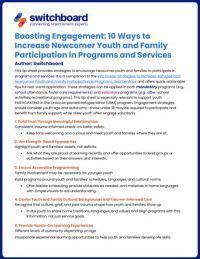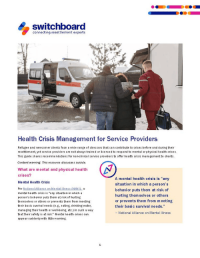Resources
Our multimedia resource library features content developed by both Switchboard and the larger resettlement community. You can browse the library by resource type, topic, population group, language, or publication year, or by using keywords through our search bar.
The external resources listed in this library represent the views and opinions of their original authors and do not necessarily represent the views or opinions of Switchboard.
Refine Results
FIRST PUBLISHED
RESOURCE TYPE
TOPIC
TARGET AUDIENCE
PUBLISHED BY
POPULATION
LANGUAGE
TOPIC:
SUBTOPIC:
TOPIC:
SUBTOPIC:






